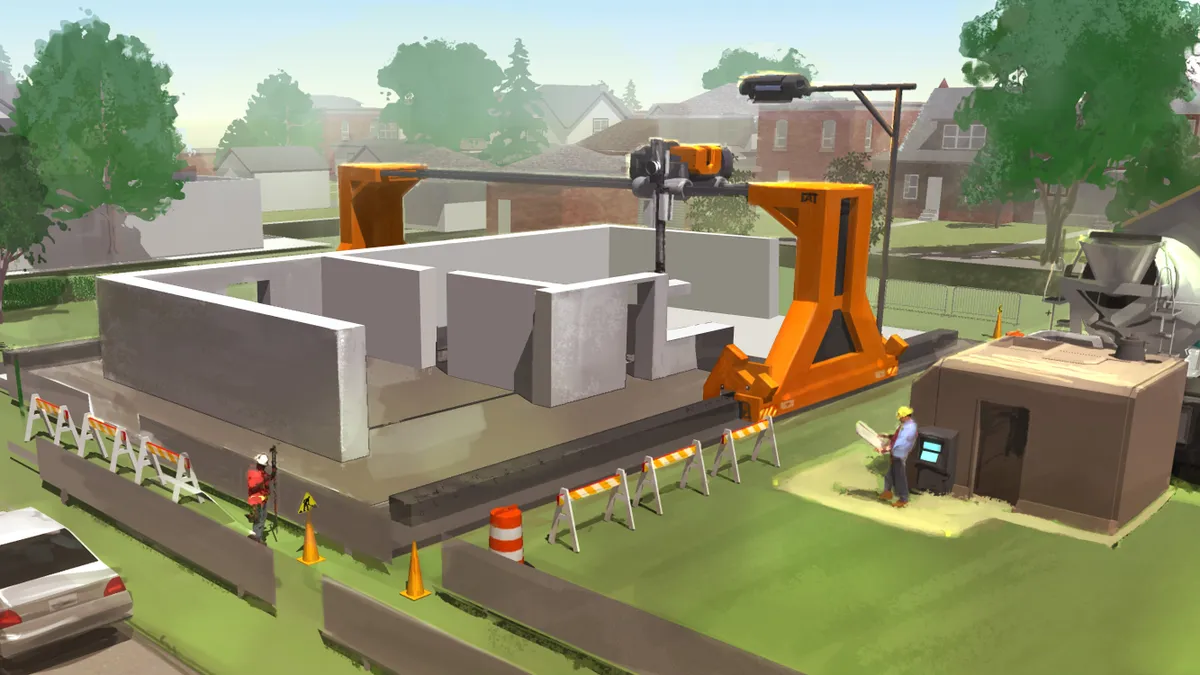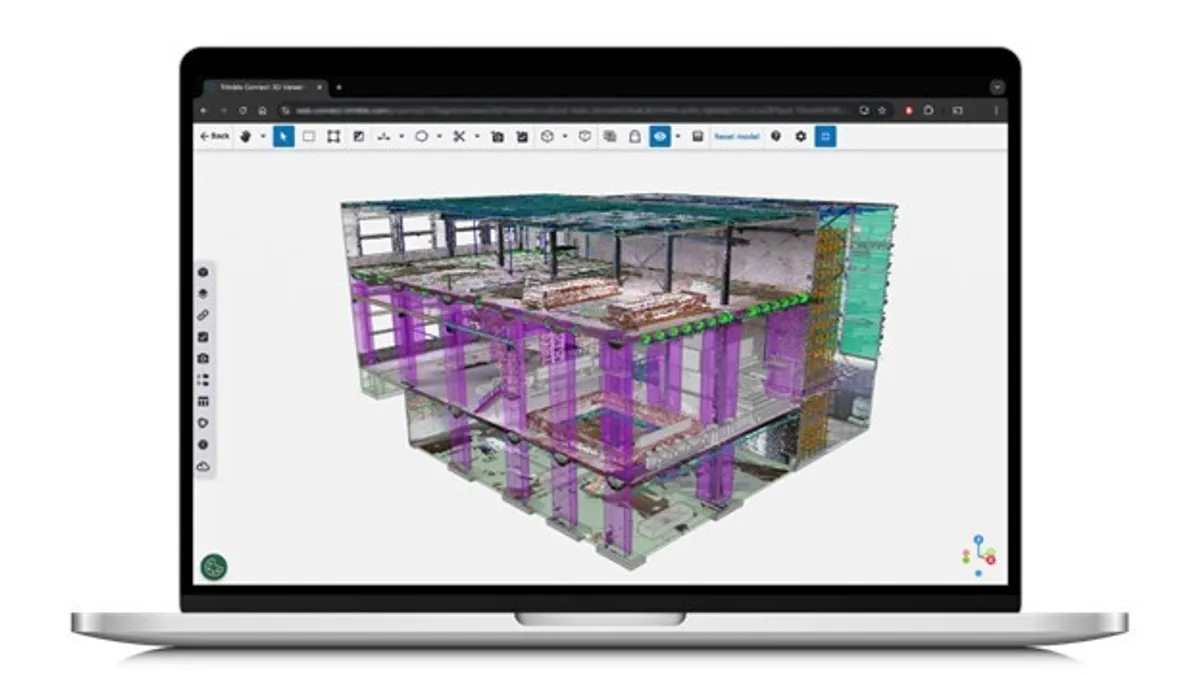Tech firms in the construction space often join forces to marry their niche solutions with other technologies and provide more comprehensive and interoperable tools. Every few weeks, Construction Dive provides a roundup of the most recent mergers, acquisitions and integrations in the construction technology space. To view the entire series, click here.
BuildingConnected taps TradeTapp
BuildingConnected, a digital platform that connects real estate owners and general contractors with subcontractors, last week acquired TradeTapp, a tool that uses algorithms to analyze subcontractor performance across a variety of metrics, including backlog position, work history, average project size and adherence to schedule and budget commitments.
The merger creates an integrated joint platform meant to deliver project-specific risk mitigation recommendations based on subcontractor data, an Aug. 14 press release explained.
BuildingConnected claimed it has around 200,000 owners, contractors and subcontractors using its platform to connect and bid out more than $100 billion in new construction projects per month. Earlier this year, the San Francisco-based firm received $15 million in new funding from Brookfield Ventures, bringing the company's total funding to $53 million. Turner Construction and other big builders have signed on to use its services to find subcontractors.
TradeTapp's proprietary system promises to not only capture and analyze historical data about subs, but also to compare a sub against its peers in the region. Tishman Construction Corp. is among its list of construction clients.
Rhumbix gets $8M in Autodesk-led funding round
Rhumbix, an app that aims to help contractors go completely paperless in their daily effort to track "labor productivity and budget versus actual performance," has been injected with $8 million in a recent round of funding led by Autodesk, Inc.
Rhumbix aims to help "owners, general contractors and subcontractors know daily whether they made or lost money on project sites, [providing] visibility into the factors driving production gains and losses," the San Francisco-based startup said in an Aug. 15 press release.
The mobile platform, which collects data from construction workers' smartphones to offer "real-time, data-driven insights" for project managers and developers, has had several successful funding rounds in the past years, including a $6 million boost in 2015 led by Greylock Partners.
Autodesk, a powerhouse presence in the digital solutions for the construction industry space, said in the press release that its Autodesk Forge Fund has invested in six construction technology startups in the past year, and that each investment is meant to provide its customers with more integrations and connections between the various tech and data it employs.
"Simply from an IT infrastructure and worker comfort point of view, there needs to be some level of convergence of jobsite data collection technologies," Rhumbix's director of data science, Michael Myers, told Construction Dive in 2016.
Rhumbix last month launched a new feature designed for general contractors and subcontractors to submit reports on time and materials via iPhone or iPad for a general contractor to approve.
Robotics startup gets DOD funding for 3D-printed concrete buildings
The United States Department of Defense recently awarded California-based Contour Crafting a nearly $3 million research and development contract, 3Dprint.com reported. Contour Crafting uses automated robotic arms to stack or place layers upon layers of building material, such as concrete, quickly and without much manual labor.
The contract, effective July 25, will help Contour flesh out 3D printing technology capable of rapidly building structures in the wake of a disaster. Based on its current specifications, a 2,000-square-foot house can be constructed in less than 24 hours, the Los Angeles-headquartered firm said on its website.
"The outcome of this funded R&D program is expected to be a technology which, among other applications, will effectively respond to disaster relief situations with expedient, safe and sustainable structures and buildings," read a company statement.
3D printing is not yet mainstream in the commercial construction space, but watershed accomplishments in the smaller-scale residential market could mean that in due time, it will be. Homes are being built in Europe entirely through 3D printing processes, for example, and the world’s first 3D-printed bridge opened to the public last year.
Machine control software developer inks deal with Chinese backer
AMW Machine Control, a Michigan-based software developer of tools that use GPS to help automate heavy machinery used in construction and other industries, announced last month that it has been acquired by publicly traded Chinese firm CHC Navigation, MiBiz reported.
The deal will allow AMW to reach a broader market that includes more small, medium and large construction firms both regionally and around the globe, AMW said in a press release.
AMW did not disclose terms of the deal, but said it has partnered with CHC for many years in its 30-year history. Primarily used in highway construction, its software traditionally paired third-party equipment with global positioning satellite technology to allow the machinery's functions to be automated through the guidance of GPS.
CHC provides AMW a direct source of hardware for its software solution, MiBiz reported, noting that AMW had been embroiled in a trademark case with another local GPS-solutions provider, GeoLogic Computer Systems, which eventually led to the former filing for a Chapter 11 bankruptcy in 2016.
Phil Gabriel, the recently appointed president of AMW Machine Control Solutions Inc., the entity formed upon the merger, reportedly told MiBiz that AMW comprises a group of engineers approaching retirement age that really needed capital to grow, and because the two firms have been long-term partners, the merger made sense.




















